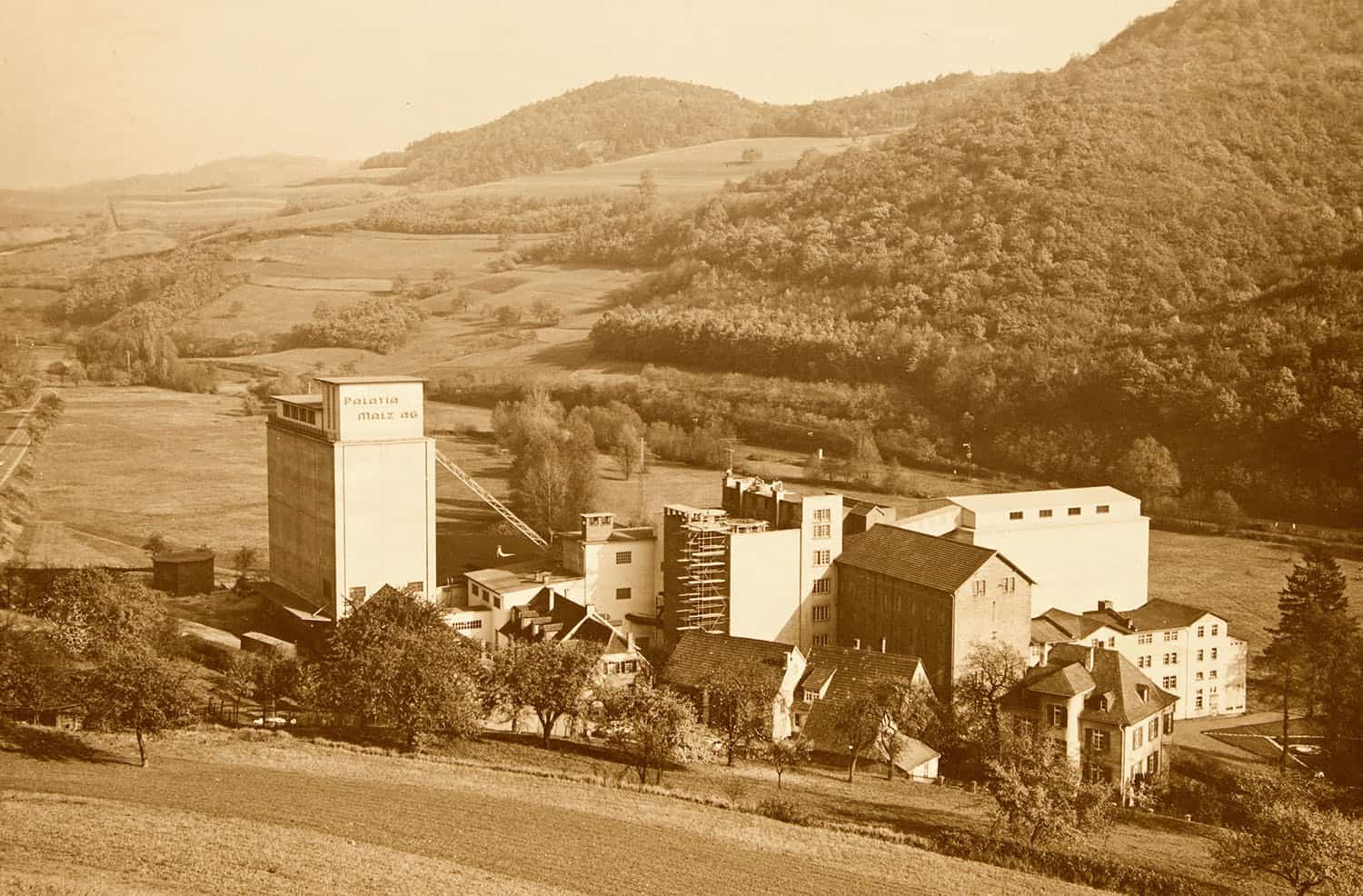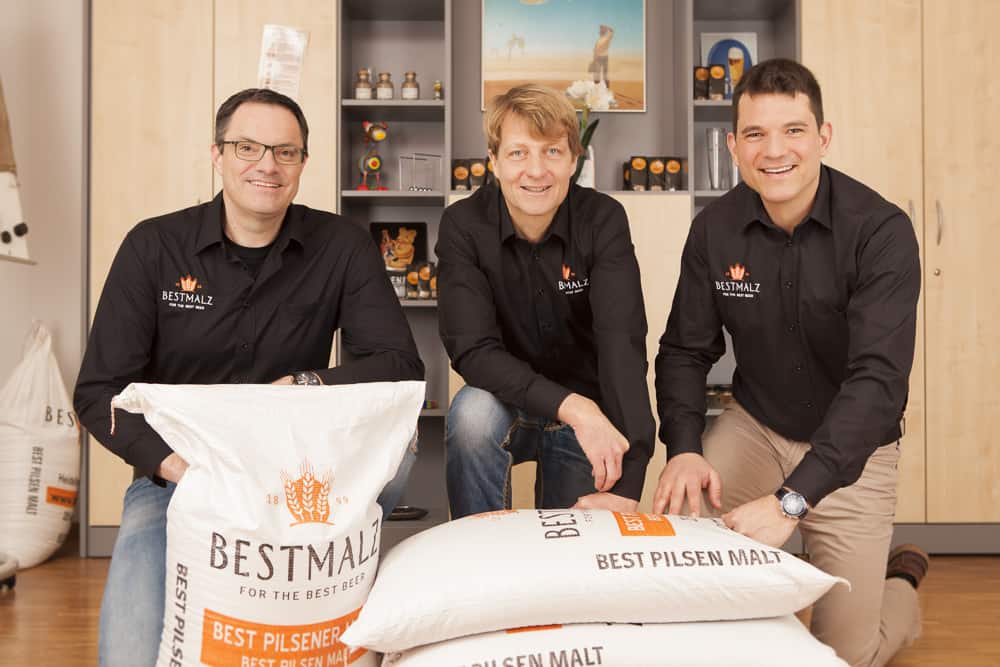Around 90 percent of companies in Germany are family businesses – in other words, businesses owned by an entrepreneurial family. They provide more than half of jobs and post strong growth. Some of them are well-known major firms like BMW, Metro, Aldi or Fresenius.
But they also include smaller companies – like Palatia Malz GmbH.
What is the secret of its success, what set it apart from firms with different ownership and decision-making structures? The Witten Institute for Family Business (WIFU) has spent many years researching this company form and has come up with some interesting theories. For example, it considers family businesses to be more successful and longer-lasting. That’s true: Palatia Malz GmbH is certainly a good example of a long-lived company, because in 2019 its celebrates its 120th anniversary.
It all started with flour
The company was established on 4 November 1899 in Kreimbach-Kaulbach in the Northern Palatinate region as a flour mill, and was converted to a malthouse in 1904. In 1930, it was taken over by Max Göhler, grandfather of Dr. Axel Göhler, the current managing director and majority shareholder. Over the next four decades, Max Göhler grew the Palatia Malz company into an important player in the German malt industry.
Investing in production and logistics
In the second generation, Max Göhler’s son Eberhard acquired a malthouse in Wallertheim in the Rhine Hesse region of Germany in 1987 in addition to the parent plant. This was mainly for logistical reasons – the new malthouse was close to the ports of Mainz, Wiesbaden and Worms on the Rhine as well as the motorways to Frankfurt and Cologne, which meant shorter distances and delivery times for domestic sales as well as for exporting goods. Palatia Malz automated its bagging and palettizing operations in 2007, and installed a state-of-the-art facility in 2009 for special malts, especially dark caramel and roasted malts. In its anniversary year 2019, the company is inaugurating a new logistics warehouse. Over the decades, Palatia Malz therefore continuously invested in the company’s future – something that is characteristic of owner-run companies, according to managing director Dr. Axel Göhler. “All three generations of our company considered it crucial to recognize the sign of the times without losing sight of quality and tradition.”
Tradition and innovation – a good combination
Always with an eye on quality, the traditional malthouse has for many years relied on slow, handcrafted malting methods, combined with state-of-the-art production, logistics and quality control. Soon after the turn of the millennium, Palatia Malz recognized the potential of the craft beer trend and has offered a wide range of craft and special malts since 2007, which are highly popular in Germany and abroad. The portfolio today encompasses a full range of some 50 products – base and special malts, organic malt as well as malt made with the historic grain variety Barke. They are sold worldwide under the Bestmalz brand to more than 300 customers in German-speaking Europe as well as via certified dealers in more than 60 countries worldwide.
Dr. Axel Göhler, Max Göhler’s grandson, joined the management team in 2014, set about restructuring the company, and now runs the fast-growing national and international malting group together with two non-family management colleagues.
“Family businesses form the backbone of our economy in Germany. Sufficient growth capital, digitalization and consolidation in the German brewing industry certainly pose challenges for mid-sized companies in our industry, there’s no doubt about that! But they also open up many opportunities. We for our part have decided to take advantage of these!” says majority shareholder Dr. Axel Göhler, looking boldly to the future.



